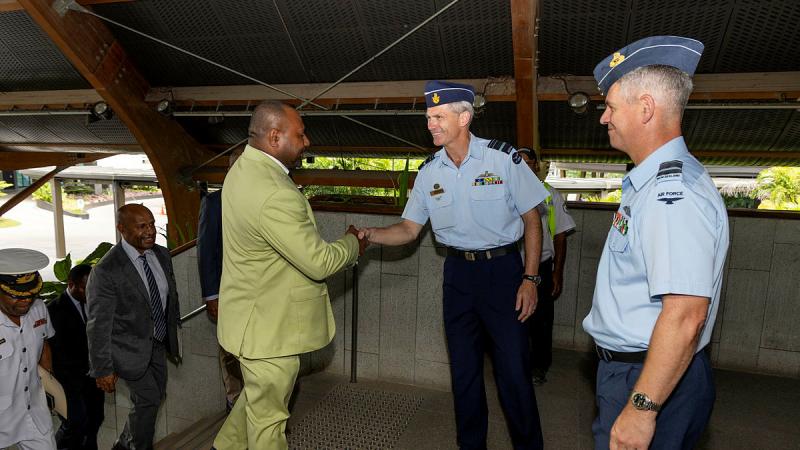
Over 130 participants from countries, partners and civil society came together at the Global Meeting of the Working Group on Public-Private Mix for TB prevention and care (PPM Working Group). The meeting, held on 12 November in Paris, France, was convened by the World Health Organization (WHO) and Stop TB Partnership with support from the US Agency for International Development (USAID) and the Global Fund. The meeting was organized on the sidelines of the 53rd Union World Conference on Lung Health.
The meeting was opened by Dr Tereza Kasaeva, Director of WHO’s Global TB Programme and Dr Madhukar Pai, Chair of the Stop TB PPM Working Group and Inaugural Chair of the Department of Global & Public Health at McGill University. TB survivor and advocate – Mazidatun Maftukhah – shared her personal journey on combating TB, and called for accountability of all care providers to ensure access to quality care.

“The increased engagement of private and unengaged public providers is one of the important drivers to close gaps in access to care and towards reaching the commitments made by world leaders in the political declaration of the second UN high-level meeting on TB,” said Dr Tereza Kasaeva, Director of WHO’s Global TB Programme. “It is encouraging to see new developments and innovative PPM models being implemented by countries including on expanded PPM monitoring through data dashboards to enhance accountability and prioritization of interventions based on patient needs.”
Dr Madhukar Pai, Chair of the PPM Working Group emphasised, “It is great to see TB programmes recover from the pandemic. Resilience of the private health sector played a key role in this recovery, especially in countries such as India, Indonesia and the Philippines. We now need to go beyond increasing case notifications and meaningfully improve patient outcomes in the private sector.”
The opening session also included welcome remarks from the Vice Chairs of the PPM Working Group, Dr William Wells, USAID and Dr Lal Sadasivan as well as by Dr Jacob Creswell, Stop TB Partnership and Dr Mohammed Yassin, Global Fund.

Key speakers and participants at the meeting:
- Shared global, regional and national progress in prioritizing PPM to close gaps in access to prevention and care services including through the roll-out of the PPM roadmap.
- Discussed ongoing efforts to strengthen PPM monitoring and accountability, through the TB-PPM dashboard Initiative, that is aligned with the roll out of the WHO’s multisectoral accountability framework on TB (MAF-TB).
- Reviewed the outline of the 2nd PPM Roadmap to end TB.
- Charted the way forward and identified key priorities for the PPM Working Group for the coming year, taking forward the commitments made by heads of State at the 2023 UN High Level Meeting on TB.
The second session focused on strengthening PPM monitoring and accountability through enhanced TB PPM dashboards. WHO presented the intermediate outcomes of a special initiative being undertaken with 7 PPM priority countries to support monitoring and reporting across the patient pathway, with the support of the Bill and Melinda Gates Foundation. WHO has been collaborating closely with all seven countries over the past year to assess the PPM context and surveillance systems, to facilitate the development of comprehensive PPM dashboards at national and global levels. Key approaches to establishing PPM dashboards, lessons learned, and next steps were presented in a country panel featuring India, Indonesia, Kenya, and Nigeria. The enhanced TB PPM data dashboards can be accessed on the WHO website with interactive visualizations of core PPM indicators, trend analyses and country comparisons.
The third session, focused on health financing and contracting. It featured lessons and insights on government-led contracting of TB services from India and Bangladesh. The session also highlighted innovative financing, with Indonesia sharing its country-specific experience on the roll-out of payments for TB services under health insurance.
The fourth session, featured representatives from Pakistan, Nigeria, Viet Nam, India, and Indonesia, who shared their experiences on PPM implementation and innovative approaches. The session also put the spotlight on the lessons learned from the impact of the COVID-19 pandemic on private sector health service delivery, outlining implications for future pandemic preparedness.
The final session was dedicated to translating the commitments made at the second UN High-Level Meeting into action with a spotlight on PPM contribution. The panel focused on meaningful civil society engagement, shared innovative approaches involving private sector engagement supported by Stop TB, TB REACH and Challenge Facility, and provided an overview of PPM investments and contributions made by the Global Fund. The process and progress made in updating the PPM roadmap was shared and inputs from the PPM Working Group were invited.
At the close of the meeting, representatives from national TB programmes, partners and civil society commended the work of the PPM Working Group and WHO, and pledged to continue ramping up PPM efforts in countries.
Special Poster Marketplace
A special marketplace showcasing national progress from over 14 countries in the implementation of the PPM Roadmap, was held in an interactive format – featuring a “Speed-Date” poster display, along with discussions and brief presentations by country teams.
Six countries showcased special posters highlighting their experiences in developing and implementing PPM dashboards.
PPM Working Group – Yes! We can End TB!
About the PPM Working Group
Under the umbrella of the Global Working Group on Public-Private Mix (PPM) for TB Care and Prevention of the Stop TB Partnership – that is hosted by the WHO Global TB Programme, countries have been provided support to enhance collaboration between national TB programmes and diverse public, voluntary, corporate and private health care providers for TB care in different settings. The PPM Working Group members include national TB programme managers, policy makers, civil society and affected communities, representatives from the private sector, academia, field experts, international technical partners and development agencies.







